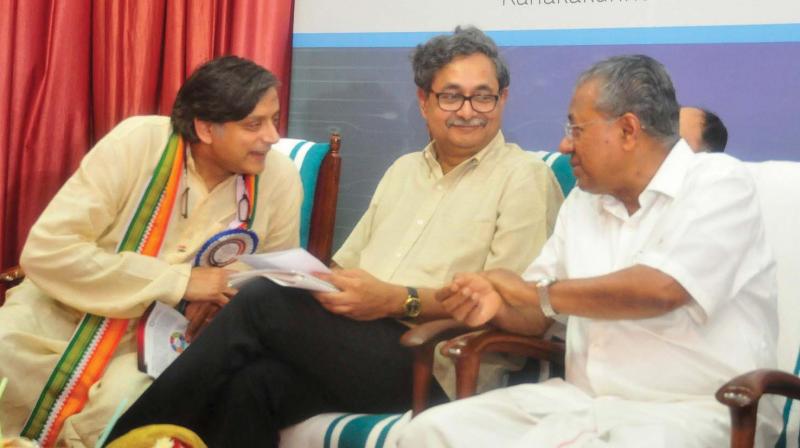K-DISC to create super mentors for Kerala
Think tank to tap Malayali scientific Diaspora to form a pool of at least 20,000 scientific experts.

THIRUVANANTHAPURAM: Kerala Development and Innovation Strategic Council (K-DISC), the state’s strategic think-tank that was unveiled on Saturday, will function less like a closed exclusive group and more like ‘open source software’. It wants its innovations to be powered by mass collaboration. As a first step, K-DISC will tap the Malayali scientific Diaspora. “The plan is to swiftly form a pool of at least 20,000 Malayali scientific experts working outside the state,” said Dr K. M. Abraham, the chairman of K-DISC. For this, the platform created by the Loka Kerala Sabha will be leveraged. “The chief minister will write to the attendees of Loka Kerala Sabha to identify experts in various scientific fields, from nuclear science to nano technology. Once the credentials of these nominees are validated, we will ask them to contribute to K-DISC’s innovation and strategy development process,” Dr Abraham said. In short, they will function as a sort of super mentors of K-DISC.
Dr Abraham estimates that there would be at least one lakh Malayalis proficient in the various sciences scattered all over the world. “In a way, K-DISC offers our non-resident luminaries a medium through which to contribute generously to the growth of their home state,” Dr Abraham said. Kerala as Blockchain hub: K-DISC has already initiated steps to put Kerala at the cutting edge of technology. The ‘Blockchain Competency Development Programme’, which it will provide through Kerala Blockchain Academy, is a case in point. Blockchain, the technology that powers cryptocurrencies like Bitcoin, does away with a central server, and uses a distributed ledger system. Every single transaction is recorded, and once it is recorded in the blockchain, it cannot be changed.
“It works on consensus-based system,” said Dr S. Ashraf, IITM-K professor and the man leading the state's blockchain charge. “Only when and if the other ‘participating nodes’ or persons involved in the ecosystem agree to something that has been proposed will a new data go into the system,” he said. The idea is to create an army of 50,000 Blockchain technologists in three years. “When world leaders in technology are looking for skilled blockchain people, Kerala should be the place to look for,” Dr Abraham said. The state already has the first mover advantage. There is no blockchain academy or institute anywhere else in the state. (Telengana plans to start a blockchain college but it is still on paper.) Placing bets on blockchain technology seems sound. A recent global study states that the market size of blockchain technology is expected to grow by 300 percent in the next five years.
Research is also at an advanced stage on how to use the blockchain technology for various governance projects as the technology is tamper-proof and transparent. K-DISC is already in talks with Michael Gord, the founder and CEO of MLG Blockchain, and Susanne Tarkowski Tempelhof, the founder of BITNATION, to adapt some of the blockchain-related projects they have implemented. BITNATION, which calls itself a 'decentralised borderless voluntary nation', for instance is working to provide water purification kits to families in impoverished areas. It has also developed a system to track law and order in South Africa. Dr Abraham, however, is interested in using the blockchain technology for storing land records. “Now the resurvey mechanism is such a mess because the existing data has been tampered with or is wrong,” he said. Kerala Blockchain Academy has evolved a system called Skillchain, a blockchain based job portal for unorganised or informal sector.
